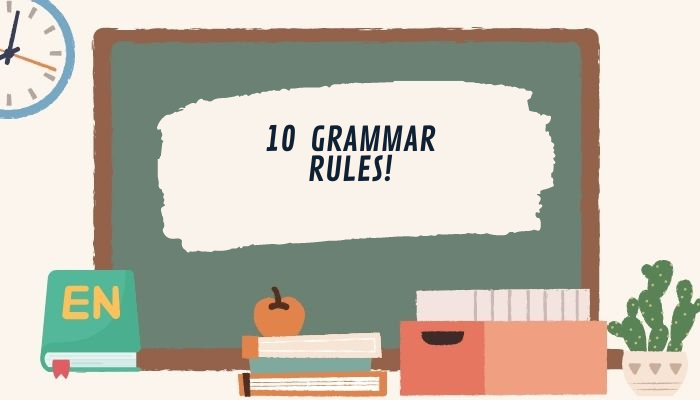Great site to keep my english skills updated for work and travel. I am really enjoying the lessons!
Maria C
 Argentina
Argentina


Here are 10 simple rules and tips to help you avoid mistakes in English grammar.
1. A sentence starts with a capital letter and ends with a period/full stop, a question mark or an exclamation mark.
2. The order of a basic positive sentence is Subject-Verb-Object. (Negative and question sentences may have a different order.)
3. Every sentence must have a subject and a verb. An object is optional. Note that an imperative sentence may have a verb only, but the subject is understood.
4. The subject and verb must agree in number, that is a singular subject needs a singular verb and a plural subject needs a plural verb.
5. When two singular subjects are connected by or, use a singular verb. The same is true for either/or and neither/nor.
6. Adjectives usually come before a noun (except when a verb separates the adjective from the noun).
7. When using two or more adjectives together, the usual order is opinion-adjective + fact-adjective + noun. (There are some additional rules for the order of fact adjectives.)
8. The words its and it's are two different words with different meanings.
9. The words your and you're are two different words with different meanings.
10. The words there, their and they're are three different words with different meanings.